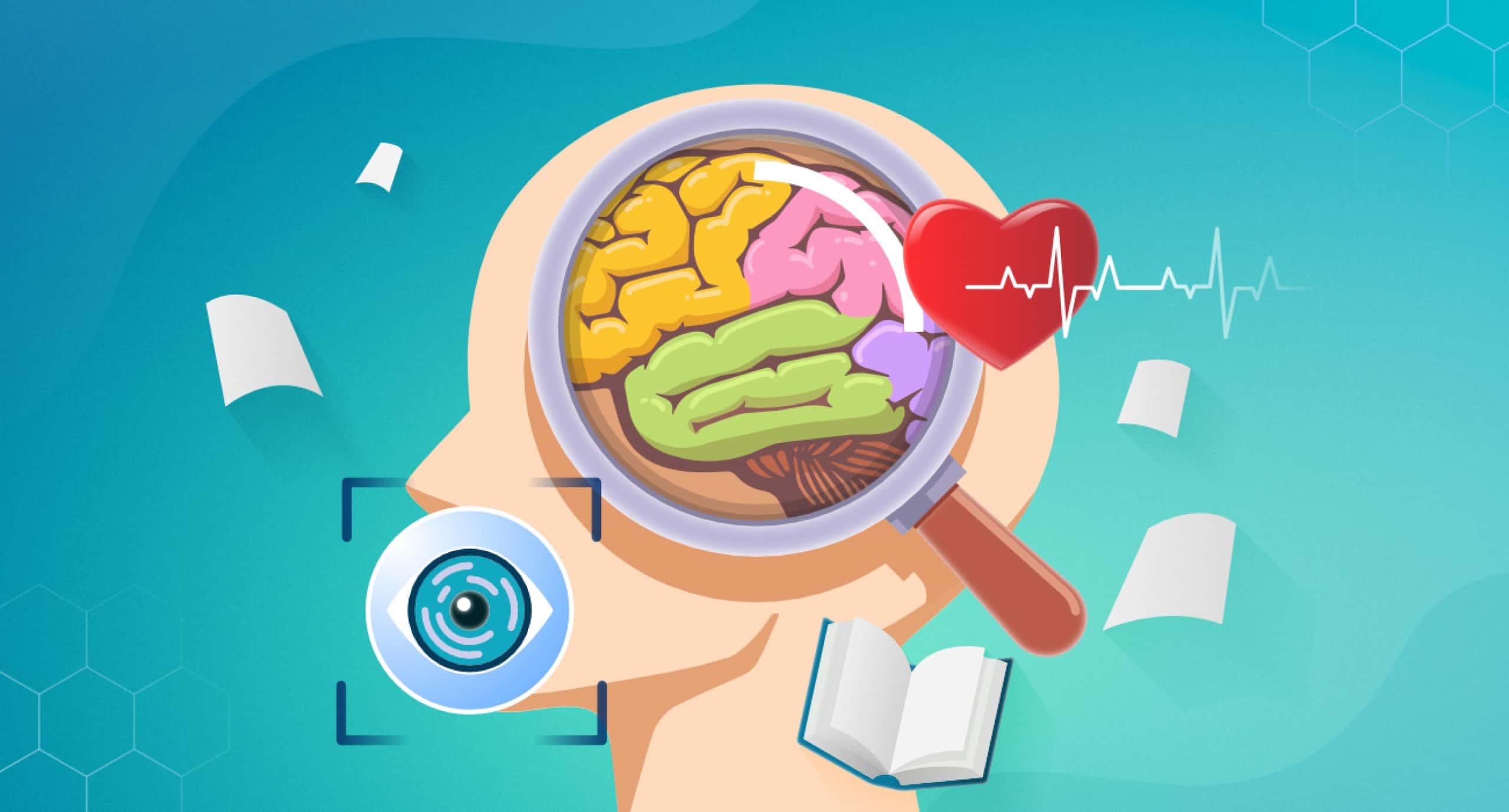As AI technology becomes increasingly woven into the fabric of our lives, we can't ignore the ethics question. How do we ensure that AI serves everyone fairly, without biases or privacy breaches? This article delves into the critical subject of the Ethical Integration of AI, exploring challenges like mitigating bias and promoting transparency.
We'll also spotlight innovative solutions, setting the course for a more ethical AI future. Keep reading to understand why these aspects matter to you and how we are taking steps to democratize AI responsibly.
1. What is the Ethical Integration of AI?
Ethical Integration of AI is necessary for making the world smarter—responsibly. Imagine a world where AI systems decide who gets a loan or a job. Now, what if those systems are biased? Scary, right? That's why ethical AI is crucial.
It's about making sure AI understands the difference between right and wrong. And ensuring AI serves everyone reasonably, without any hiccups. According to a survey conducted by PwC in 2020, 70% of the 1000 global business leaders who participated in the study said they planned to implement AI initiatives in some form next year.
However, only 25% of them reported that they had fully considered the ethical risks and impacts of their AI projects, such as privacy, bias, accountability, and transparency. This suggests a gap between the rapid adoption of AI and the careful assessment of its ethical implications.
2. Considerations for the Ethical Integration of AI
Bias in AI: What it is and why it's a problem
Bias in AI is displayed when these intelligent systems make unfair decisions. These choices often reflect society's prejudices. A key example is facial recognition technology. It doesn't work as well for people with darker skin tones.
An MIT study found that these systems wrongly identified dark-skinned women 34.7% of the time but only 0.8% for light-skinned men. This brings up serious questions about the ethical use of AI.
Privacy Issues: Data Collection and Usage
Privacy is a significant concern in the world of AI. Companies often collect personal data, from geographical location to online shopping preferences of their customers. AI systems use this data for targeted advertising and predictive services.
However, the Federal Trade Commission warns that improperly handling or misusing this data can lead to severe consequences like identity theft. Recall the incident where Target's AI algorithms predicted a teen girl's pregnancy before her father did. The algorithms analyzed her shopping patterns and sent her maternity ads, leading to an awkward family conversation.
Accountability and Transparency Issues in AI
Accountability and transparency are crucial but challenging parts of AI governance. When an AI system messes up or hurts someone, it's not always clear who's at fault—the person who made it, the one using it, or the AI itself.
Companies like OpenAI say being open about how AI makes choices is crucial to gaining public trust and meeting ethical standards. This openness comes from sharing details about the AI's data, design, development, deployment, and monitoring.
It also means ensuring the AI is fair, explainable and can undergo checks. There are different guides, like the ART framework and OECD.AI principle, to help make AI more transparent.
Ethical Dilemmas: Autonomy vs. Control
The debate between autonomy and control in AI is a big ethical topic. Autonomy lets AI make its own choices, while control means humans set the rules. AI can have different levels of both, based on design and use.
For instance, should a self-driving car follow strict rules or adapt to situations? Also, how do we keep everyone safe on the road, like passengers, pedestrians, and drivers? An online experiment by MIT's Moral Machine gathered 40 million decisions from millions in 233 countries and territories and found significant variations in moral preferences across cultures and demographics.
3. Technical Complexities
This section will discuss the technical elements that impact AI's credibility, accuracy, transparency, fairness, and its benefits to society.
Data Quality: Garbage In, Garbage Out
Data is the lifeblood of AI. But what happens when that data is flawed? You get poor AI decisions. In a survey, 87% of 300 data and analytics leaders said that data quality issues were among the top reasons their organizations failed to implement AI successfully.
Ensuring ethical standards in democratizing AI starts with clean, unbiased data. If your data exhibits bias, your AI will make biased decisions. It's that simple.
AI's Algorithm Design
The design of algorithms involves choices made by those who build AI. These choices shape how AI processes data, learns, and makes decisions. Even small choices can raise ethical questions.
AI's Application Context
The context of the application defines where and how we use AI. This context affects AI's interaction with users and its level of risk and accountability. It also sets the social and legal rules AI must follow.
4. Social Impact of AI
Job Displacement: The Double-Edged Sword of AI
AI is a game-changer, no doubt. It's making businesses more efficient and customer experiences richer. But let's not forget, it's also nudging some folks out of their jobs.
According to a scenario analysis by McKinsey, between 400 million and 800 million individuals could be displaced by automation and need to find new jobs by 2030 at a global level. Upskilling is the word of the day. Companies and employees need to adapt and fast.
Inequality: The Gap Widens
AI isn't a VIP club, but sometimes it acts like one. It's not an invitation extended to everyone to try it out. Marginalized communities often find themselves on the wrong side of the AI divide.
In 2019, a Pew Research report found that 76% of adults in lower-income households in the U.S. have a smartphone. Yet, this is lower than the 96% of adults in higher-income households who own one. This gap may affect their access to AI technologies that rely on smartphones. Therefore, digital literacy and equal access are necessities.
Human Relationships: AI's Role in Emotional Support
Ai is slowly stepping into the space of emotional well-being. Developers have created AI-powered chatbots to offer emotional support and guidance. These chatbots use natural language processing to interact with users, offering advice and emotional support in challenging situations.
For instance, Replika, an AI chatbot, has gained fame for its ability to form emotional bonds with users. It's a game-changer but raises ethical questions about AI-human relationships.
5. Psychological Implications of AI
Human Behavior: The AI Influence
AI is no longer just code; it's a social influencer. As we integrate AI ethically, we're not just coding machines but shaping human behavior. A study shows that people are more likely to follow AI advice than human experts in fields like healthcare. This raises questions about our growing dependency on AI for decision-making. Are we, in essence, outsourcing our free will?
Ethical Dilemmas: Trust Issues, Anyone?
AI can be a lifesaver, but it can also backfire.
In one instance, a Tesla car on autopilot crashed into a truck, killing the driver. The driver had ignored multiple warnings to take control, placing too much trust in the AI system. Building trust in AI is a two-way street. AI systems must be transparent, and we must be cautious not to trust AI blindly.
Ethical AI for social good involves a balanced relationship between humans and machines. Trust, but verify.
6. Innovative Solutions
AI Ethics Guidelines
Companies are now adopting AI ethics guidelines to guide responsible AI development. These guidelines are like rule books detailing handling ethical concerns such as bias and data privacy. For instance, the IEEE's Ethically Aligned Design is a go-to guide for many tech giants.
Legal Frameworks Surrounding AI
Current Regulations: GDPR, CCPA, and Additional Legislation
The Ethical Integration of AI closely ties into existing regulations, such as the General Data Protection Regulation (GDPR) in Europe and the California Consumer Privacy Act (CCPA) in the United States. These regulations primarily focus on data protection and the rights of individuals.
The GDPR, for instance, has become a global data protection standard, as the European Commission noted. However, these laws are not exhaustive and do not fully address the complexities of AI ethics, including transparency and accountability.
Intellectual Property Rights in AI
The ownership of AI-generated content is not clearly defined, leading to ambiguities. For example, if an AI system creates a piece of music, the question arises: who owns the rights to that music? The developer of the AI system or the end-user?
A World Intellectual Property Organization study indicates the urgent need for clear guidelines to resolve such complexities.
The Need for New Laws and Ethical Guidelines
Rapid AI technology development and deployment pose significant challenges for existing legal and regulatory frameworks. Many experts and organizations have called for new laws and policies that address AI's ethical and social impacts, especially in ensuring fairness, transparency, and accountability in AI systems.
For example, the AI Now Institute published a report in 2018 that highlighted the need for businesses to adopt ethical AI best practices. It suggested that public agencies should conduct algorithmic impact assessments and implement mechanisms for public input and oversight.
Similarly, a recent article by the Brookings Institution proposed a framework for algorithmic hygiene, which involves identifying and mitigating the sources of bias in AI and machine learning technologies. It also recommended public policy measures to promote AI's ethical and responsible use.
Detecting AI-generated Content
This is pivotal for ethical AI use and its widespread adoption. It addresses challenges like misinformation and data integrity, ensuring that AI serves everyone fairly.
AI Detector platforms like ContentDetector.ai emerge as a valuable resource in this context. It's a free and powerful tool designed to identify AI-created content, adding an extra layer of trust and transparency. ContentDetector.AI helps users navigate the digital world with confidence. It plays a crucial role in democratizing AI.
Case Studies: Companies Doing It Well
IBM's AI Fairness 360 is a toolkit designed to help businesses detect and mitigate bias in AI systems. IBM isn't alone; companies like Google and Microsoft are also stepping up. They're not just discussing ethical AI best practices for businesses but implementing them.
Future of Ethical AI: What's on the Horizon?
We are not merely dreaming of the future but building it today. AI for social good is gaining traction. We're seeing more projects like Zindi and Intsimbi Future Production Technologies Initiative aimed at democratizing AI in developing countries.
The goal? To make AI technology accessible and inclusive for everyone, not just the Silicon Valley elite. The future of AI is not only about technological innovation but also about ethical and social responsibility.
There have been proposals to make AI accessible, inclusive, fair, transparent, and accountable. Despite progress, there are still challenges and gaps in ensuring that AI benefits everyone. Everyone needs to work together and use ethical AI practices. This includes governments, businesses, researchers, and civil society.
7. Industry Insights: Real-World Applications and Best Practices
AI in Healthcare: Ethical Considerations
Healthcare is a field where AI can be a game-changer. From diagnosing diseases to personalized treatment plans, AI is revolutionizing patient care. But hold on, it's not all rosy. We can't ignore ethical considerations like data privacy and algorithmic bias.
Hospitals are now adopting AI ethics frameworks to ensure that AI serves everyone, not just a select few.
AI in Finance: Balancing Risk and Reward
AI changes finance by detecting fraud, managing portfolios, and algorithmic trading. However, it poses risks like data quality, model validity, algorithmic bias, and systemic instability. To use AI ethically in finance, transparency and accountability are necessary.
Platforms like ChatWithPDF help understand complex legal documents and demystify the insights. That's why Financial companies are learning ethical AI guidelines. They use data management and follow specific guidelines.
AI in Transportation: Safety First
Self-driving cars, anyone? AI is steering the future of transportation. But safety can't take a backseat. Companies are now working to make AI safer and more transparent for your ride home.
AI in Education
AI has many uses in education and brings benefits, but it also raises ethical concerns. These include data privacy, fairness, accountability, and transparency. Educators and students should know AI's potential and limitations and use it responsibly and ethically.
Organizations like UNESCO and the European Commission have guidelines for educators using AI and data. These guidelines help teachers and school leaders use AI and data in their practices. They also raise awareness of AI's ethical principles and implications for education.
AI in Content Generation
Have you ever read an article and thought AI could've written it? Well, it probably did. According to a report, AI could create 90% of internet content by 2026. However, this hasn't happened yet. AI-generated content sure is increasing. It has ethical challenges such as bias, plagiarism, misinformation, and fake news.
Creators who use AI for content creation should adhere to ethical AI frameworks and best practices. These include data governance, model explainability, algorithmic auditing, and regulatory compliance.
Best Practices: How Industries Are Getting it Right
Industries are waking up to the challenges and opportunities of democratizing AI. Best practices include regular monitoring, ongoing training, and addressing bias. It's all about building trust in AI.
Key Takeaways
- Ethical AI is crucial for fair decision-making in sectors like loans and jobs.
- Only 25% of business leaders fully consider ethical risks in AI projects.
- Bias in AI, especially in facial recognition, disproportionately affects dark-skinned individuals.
- Privacy concerns arise from the misuse of personal data for targeted advertising.
- Accountability in AI is complex; transparency is key to building public trust.
- Debate exists between AI autonomy and human control, impacting safety and ethics.
- Data quality is vital; flawed data leads to flawed AI decisions.
- Cybersecurity is a growing concern; AI systems are targets for hackers.
- Interdisciplinary teams can better address ethical concerns in AI.
- Ethical AI in healthcare and finance requires transparency and data management.
- Existing laws like GDPR and CCPA are insufficient for AI's ethical complexities.
- Companies like IBM are adopting AI ethics guidelines for responsible development.
- The future of ethical AI aims for inclusivity and social responsibility.
Conclusion
AI is changing. We must consider ethical challenges like bias, privacy risks, and accountability. Teams of technology, ethics, and law experts are important for addressing these issues. They help in crafting transparent guidelines and responsible AI systems.
To prepare for the future, we must prioritize allocating resources for the ethical integration of AI research. Additionally, we should create a culture that values different areas of expertise.
Drop your thoughts on the topic in the comments below.
FAQs
1. Can AI systems learn ethics or moral values?
AI systems can't inherently learn ethics or morals. However, they can be programmed to follow ethical guidelines. The key is in the data and the rules we set for the AI. It's a human responsibility to ensure that AI operates within ethical boundaries.
2. What can individuals do to promote ethical AI in their communities?
Individuals can play a pivotal role by staying informed and advocating for ethical AI practices. Engage with local organizations, attend seminars, and use social media to raise awareness. Your voice can influence how AI is developed and deployed in your community.
3. How are governments participating in ethical AI initiatives?
Governments are increasingly involved in setting regulations and guidelines for ethical AI. They are working with experts to create laws about data privacy, transparency, and accountability. Some countries have even established AI ethics boards to oversee these efforts.
4. What first steps should a company take to integrate ethical AI practices?
Firstly, companies should conduct an ethical risk assessment of their AI projects. This involves identifying potential biases, data privacy issues, and accountability gaps. Next, consult with ethicists and legal experts to develop an ethical AI framework. Training staff in ethical AI practices is also crucial.
5. Is it possible to create an AI system free from all forms of bias?
Achieving an utterly bias-free AI system is challenging but not impossible. The key lies in the quality of data used for training the AI. Companies can reduce bias by using diverse and representative data and regularly auditing the system.
6. Who Oversees AI Ethics?
Internal boards, external regulators, and sometimes the public supervise AI ethics. It requires the collaboration of multiple stakeholders to ensure the responsible development and deployment of AI.















Leave a Reply